Does a dehumidifier get rid of mould? Experts reveal what impact it can have on mould
Dehumidifiers remove excess moisture from your house, but can they get rid of mould completely?


It’s important to tackle mould as soon as you spot it to prevent damage to your home or your health, but does a dehumidifier get rid of mould?
At Ideal Home, we’ve tried and tested the best dehumidifiers on the market, and it’s safe to say that it’s become our must-have home appliance. But with colder and wetter months on the horizon, we can’t help but wonder whether a dehumidifier is the key to getting rid of damp and keeping our homes mould-free.
In order to understand more about the moisture in our homes, we asked the experts for their professional take on the matter. And we have some good news… and some bad news.
Does a dehumidifier get rid of mould?
According to the Managing Director of Meaco, Chris Michael, unfortunately, a dehumidifier can't get rid of mould.
‘A dehumidifier is a preventive measure,’ he says. To get rid of mould once and for all, you need to, ‘Solve the excess moisture problem that’s enabling the conditions for mould to form. This could be water ingress from a leaky pipe, loose roof tiles, poor ventilation, rising damp, drying washing indoors etc.’
Yes, if you have a bad mould problem, you first need to understand why you have mould. It could be that you simply have poor ventilation or insulation in your house, but it’s best to rule out any major leaks or structural damage before trying to treat it.
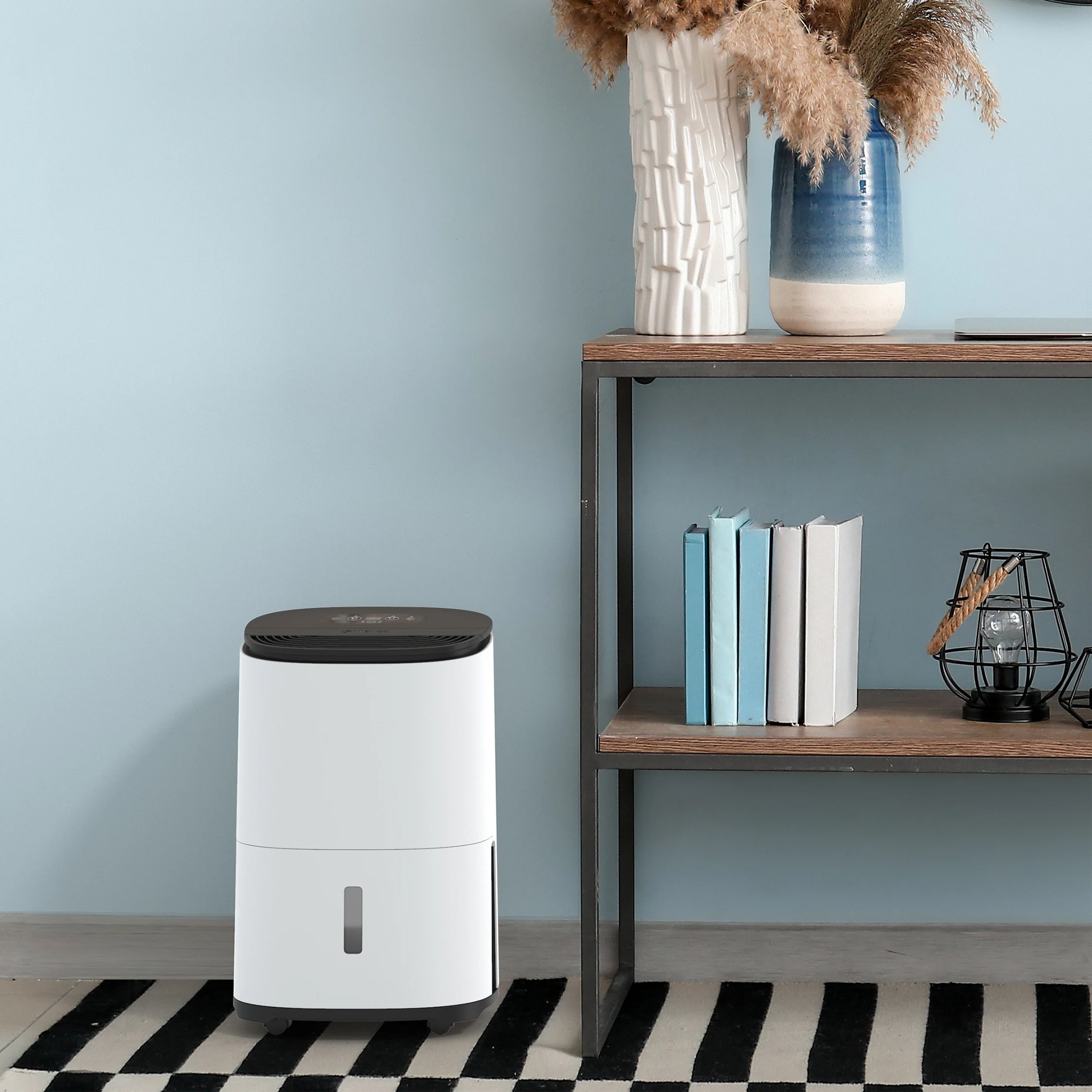
It’s not all doom and gloom, though. Chris explained that while dehumidifiers can’t get rid of mould, they can stop mould from getting worse or developing in the first place. He adds, ‘Investing in a dehumidifier can remove water from the air directly, leading to a reduction in condensation and less opportunity for mould spores to form.’
Get the Ideal Home Newsletter
Sign up to our newsletter for style and decor inspiration, house makeovers, project advice and more.
Marc Duckworth, Product Manager for Russell Hobbs at Product Care Group, agrees with Chris. ‘Mould thrives from moisture and tends to grow in environments with high humidity levels, so using a dehumidifier frequently will help you create conditions that are less conducive to mould growth - by reducing the humidity and moisture in a room.’

Chris has been advising on humidity solutions and dehumidifiers since 1991 and is well known within the dehumidifier industry across the world as a lead on innovation and sustainability. Since the mid-90s Chris has been a guest speaker at numerous conferences to teach museum conservators how to measure relative humidity. With a wealth of experience in the industry, Chris is committed to helping provide low-energy and low-noise solutions appliances that improve the lives of customers.
How to use a dehumidifier to prevent mould
Dehumidifiers work by pulling in excess moisture and reducing the humidity in a room, which means they can dry out a room prone to mould. To ensure it works to the best of its ability, though, there are some things you can do:
Place in humid rooms: Every room in your house will have a different humidity, with rooms such as the bedroom, kitchen, and bathroom having especially high humidity. This will often be noticeable by condensation on the windows and maybe even damp patches on the wall, but there are ways to check the humidity in your house. If you want to prevent mould as much as possible, place dehumidifiers in rooms with higher humidity - and stick to the rules of how humid a room should be to stop mould from growing.
Use when drying washing: When it’s not possible to dry washing outside, there’s often no other option but to dry your washing inside. However, experts warn against this. Drying washing inside adds even more moisture to what may already be a very humid room, which can cause mould and dampness. While a heated drying rack can dry clothes quickly, a dehumidifier can also help to remove this excess water from the air and prevent future mould.
Use more during the winter: When the cold and wet months draw in, your house will become more prone to condensation and damp. And while you can use a dehumidifier during the summer months, it’s not as important as using a dehumidifier during the winter months. By turning this appliance on for just an hour or two every day, you can keep excess moisture at bay - especially as you might not want to open windows during this time.
Below are our top-rated dehumidifiers for extracting excess moisture from the home, as tried and tested by the Ideal Home team.
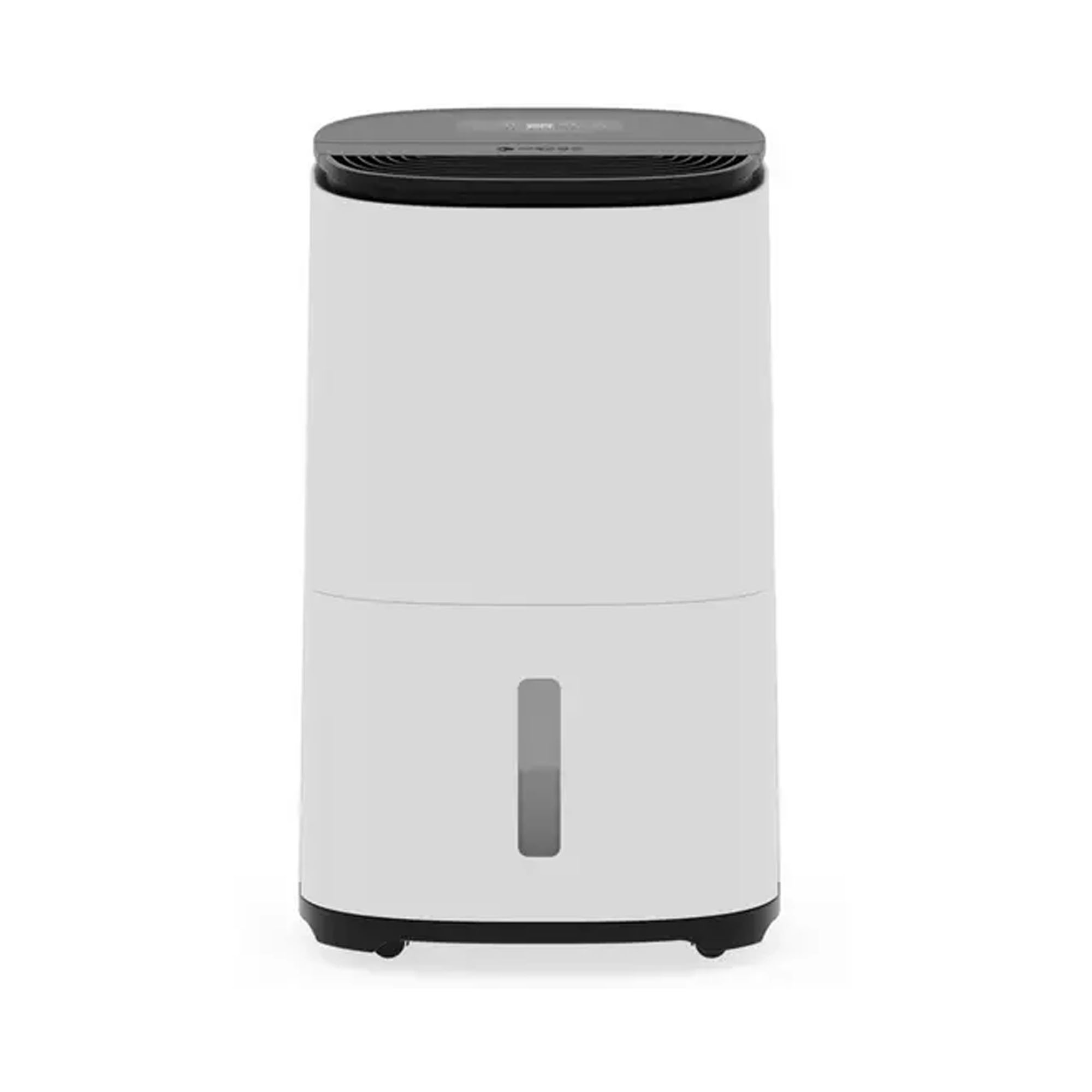
Best dehumidifier overall
The best dehumidifier we've tested, the MeacoDry Arete One is quiet, easy to use, works superbly and is very energy-efficient compared to other compressor dehumidifiers. Plus, its Smart Laundry Mode is brilliant at drying wet washing. There are Arete One models that can extract 10, 12, 20 and 25 litres of moisture from the air per day and all offer a built-in air purifier that means they improve indoor air quality in more ways than one.
Our MeacoDry Arete One Dehumidifier review has more detail.
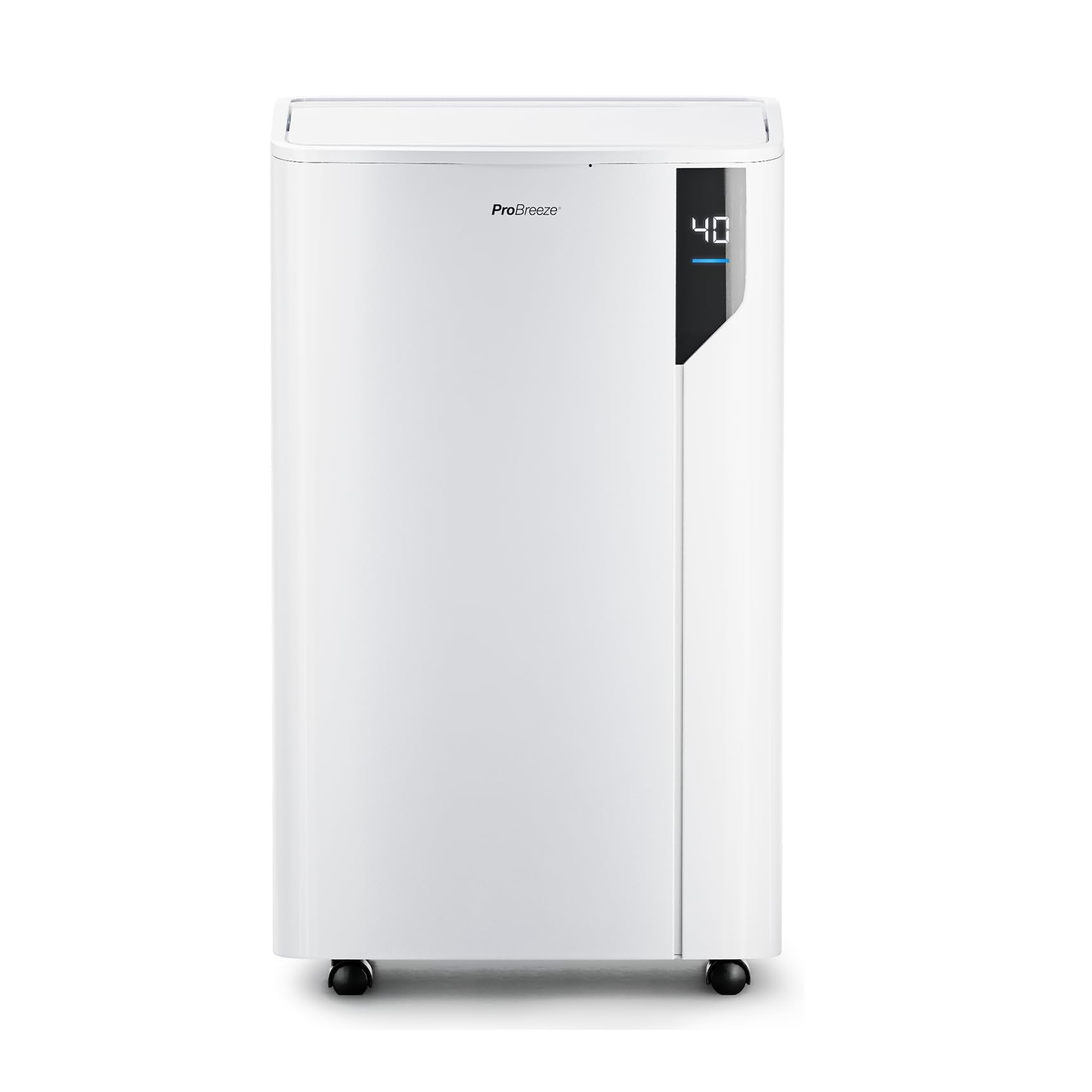
Best dehumidifier for drying clothes
Whilst we don't think it can quite beat the MeacoDry Arete One on overall performance, Pro Breeze's latest launch, the 20L Premium Dehumidifier with Special Laundry Mode, is the best dehumidifier for drying clothes that we've tested. That's as long as you don't mind accepting noisier operation and higher running costs for its powerful laundry-drying performance.
Our Pro Breeze 20L Premium Dehumidifier with Special Laundry Mode review has more detail.
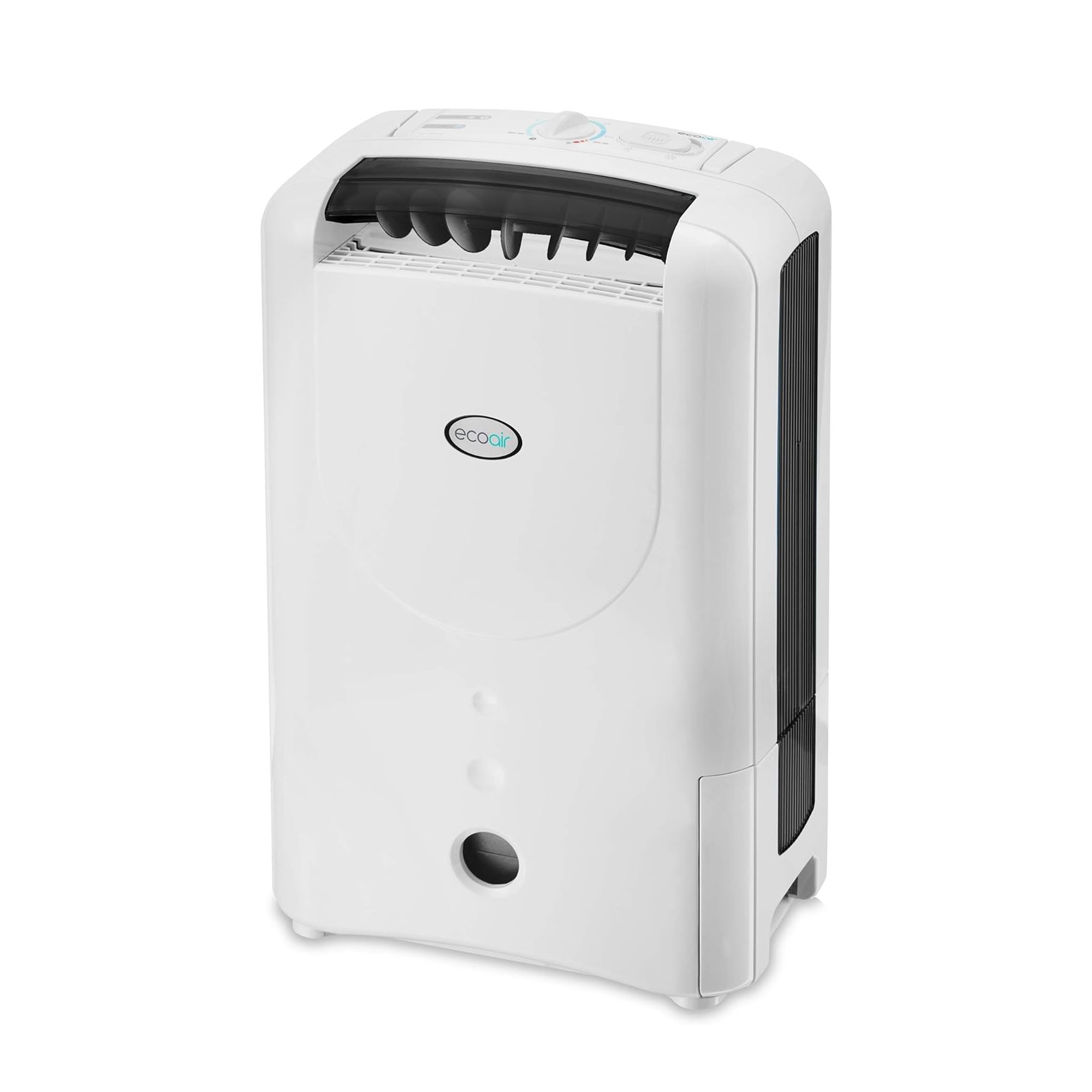
Best desiccant dehumidifier
A desiccant dehumidifier differs from a compressor or Peltier dehumidifier in that it's both able to, and more efficient at, operating in lower temperatures. The EcoAir DD1 Simple MK3 can be operated in any space that's above 1°C, making it a great option for a garage, basement, conservatory, or any unheated room during the winter months. In our tests, it also performed brilliantly in normal conditions, making quick work of drying wet washing. The only downside is its price and higher running costs.
Our EcoAir DD1 Simple MK3 Dehumidifier review has more detail.
How to get rid of mould
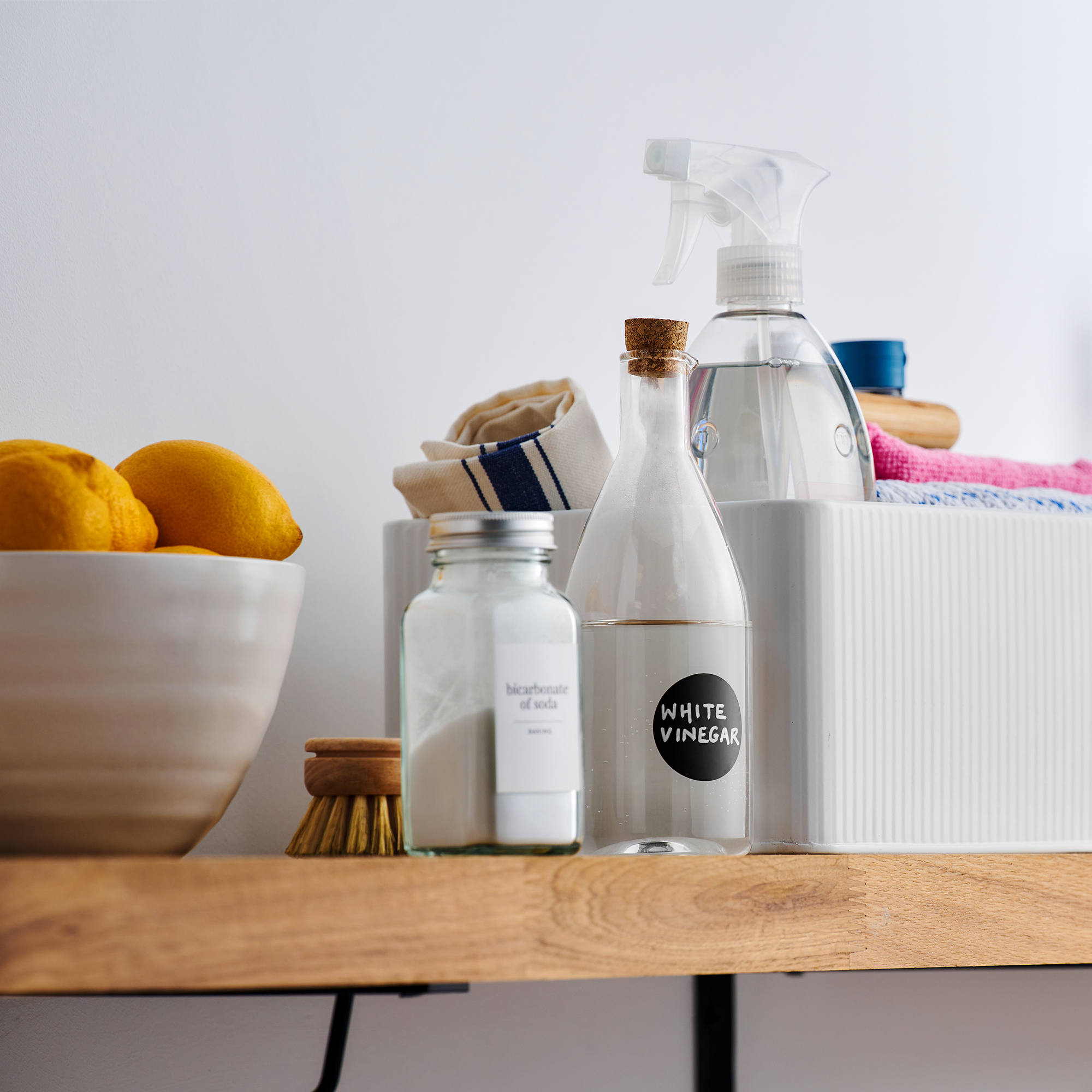
We know that dehumidifiers can prevent mould, but what happens if you already have it? A dehumidifier can stop it from getting worse, but still, it’s important to tackle these patches and get rid of mould on your walls for good. Here are a few of the many ways you can do that:
Use bleach: If you’re happy to use chemicals, a mixture of bleach and water can work wonders on mould patches. Just be careful to wear a face mask, open windows, and wear gloves when spraying and wiping down the walls. This is a hugely popular method to prevent mould staining, too. There are plenty of bleaching products availalable on Amazon if you don't have any in the cupboard.
Use vinegar: One of our favourite natural cleaning products, you can spray vinegar onto your mould spots and wait around 1-2 hours for it to work its magic. When you then wipe the vinegar off with a clean, you should also wipe the mould with it. If you don't want to run out of your favourite condiment, you can buy vinegar in bulk at Amazon; it's a great cheap and eco-friendly cleaning solution.
Use baking soda: Chris from Meaco says, ‘A well-known cleaning agent, baking soda fights bacterial growth. All you need is a spray bottle, some lukewarm water and around 1/4 tablespoon of baking soda. Fill the bottle, add the soda and shake well. Then use as you would a dirt remover spray.’ Another cleaning cupboard must-have, baking soda is also available in bulk at Amazon.
FAQs
Should I use a dehumidifier if I have mould?
Yes. It’s perfectly safe to use a dehumidifier if you have mould. In fact, a dehumidifier can stop the mould from getting even worse.
That’s because mould spores thrive in wet and humid environments, and dehumidifiers work to reduce this excess moisture from the air. In doing so, you can prevent more mould from developing.
However, it’s important to note that you still need to tackle the existing mould problem for the sake of your house and your health. It’s very easy to clean mould from your walls, but it’s also a good idea to understand why the mould has developed in the first place.
If you have a mould problem, inspect your house and check everything from your gutters to your window seals to see if you could have a leak.
Will a dehumidifier kill mould UK?
Unfortunately not. A dehumidifier can’t get rid of or kill any existing mould you have in your house. However, it can stop it from getting worse and prevent it from developing in the first place.
If you want to kill mould, you should use one of the many cleaning methods or employ the services of a professional. When you’ve done that, you can use a dehumidifier to stop that mould from coming back.
A dehumidifier might not get rid of mould, but we have no doubts that buying one will be a good investment to prevent it getting any worse.

Lauren Bradbury has been the Content Editor for the House Manual section since January 2025 but worked with the team as a freelancer for a year and a half before that. She graduated with a Bachelor’s degree in English and Creative Writing from the University of Chichester in 2016. Then, she dipped her toe into the world of content writing, primarily focusing on home content. After years of agency work, she decided to take the plunge and become a full-time freelancer for online publications, including Real Homes and Ideal Home, before taking on this permanent role. Now, she spends her days searching for the best decluttering and cleaning hacks and creating handy how-to guides for homeowners and renters alike, as well as testing vacuums as part of her role as the Ideal Home Certified Expert in Training on Vacuums, having spent over 110 hours testing different vacuum models to date!
-
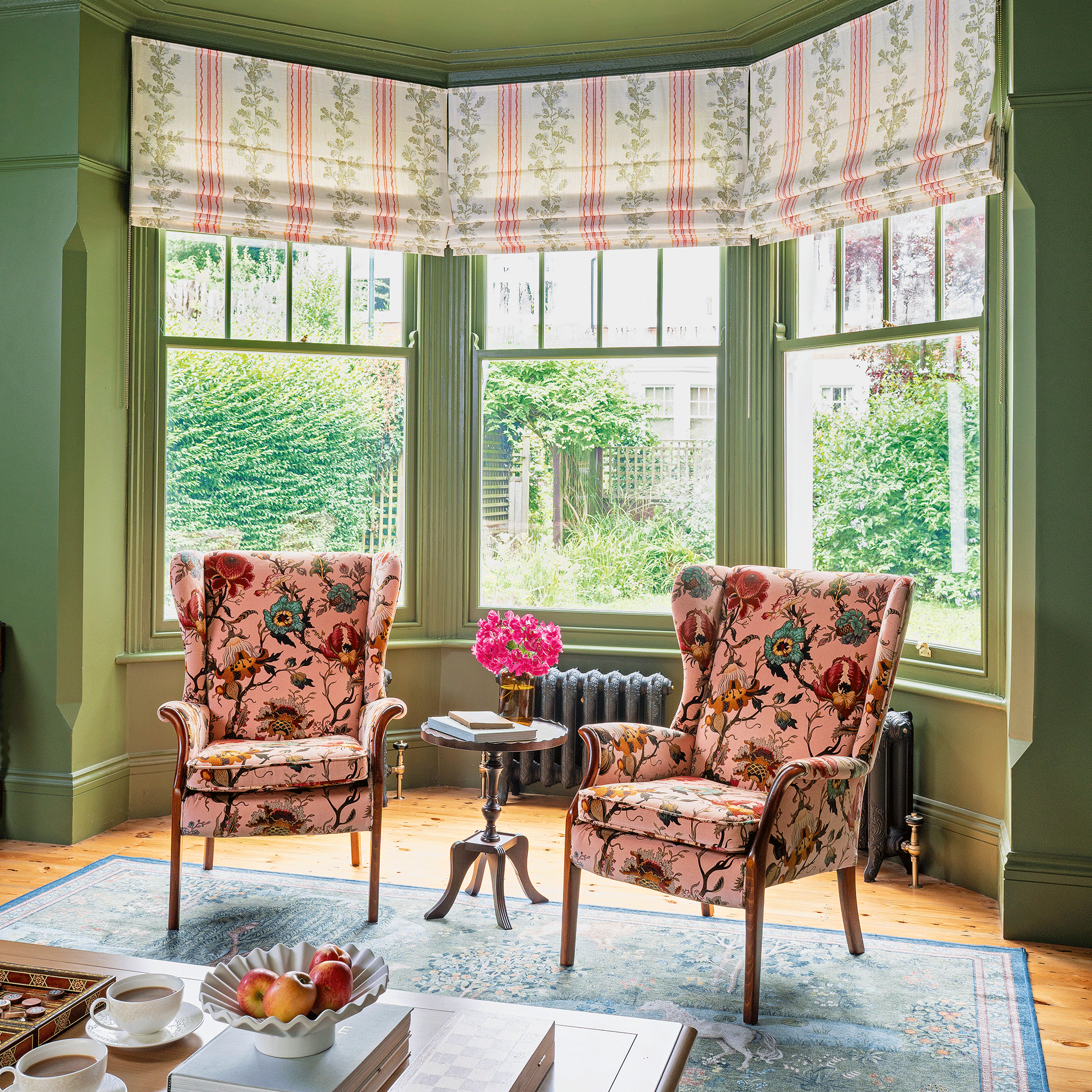 A strict colour palette and vintage finds have turned this semi-detached Edwardian house into an elegant family home
A strict colour palette and vintage finds have turned this semi-detached Edwardian house into an elegant family homeSticking to a three-colour palette of green, pink and yellow and mixing in plenty of vintage furniture and art has created an authentic period feel
By Stephanie Smith
-
 A top-to-bottom renovation has turned this Edwardian house into a lovely family home
A top-to-bottom renovation has turned this Edwardian house into a lovely family homeWith a few considered structural changes, this period house has been turned into a family home and has created a sanctuary for years to come
By Maxine Brady
-
 How to heat a conservatory
How to heat a conservatory7 practical options to consider for year-round comfort
By Amy Reeves